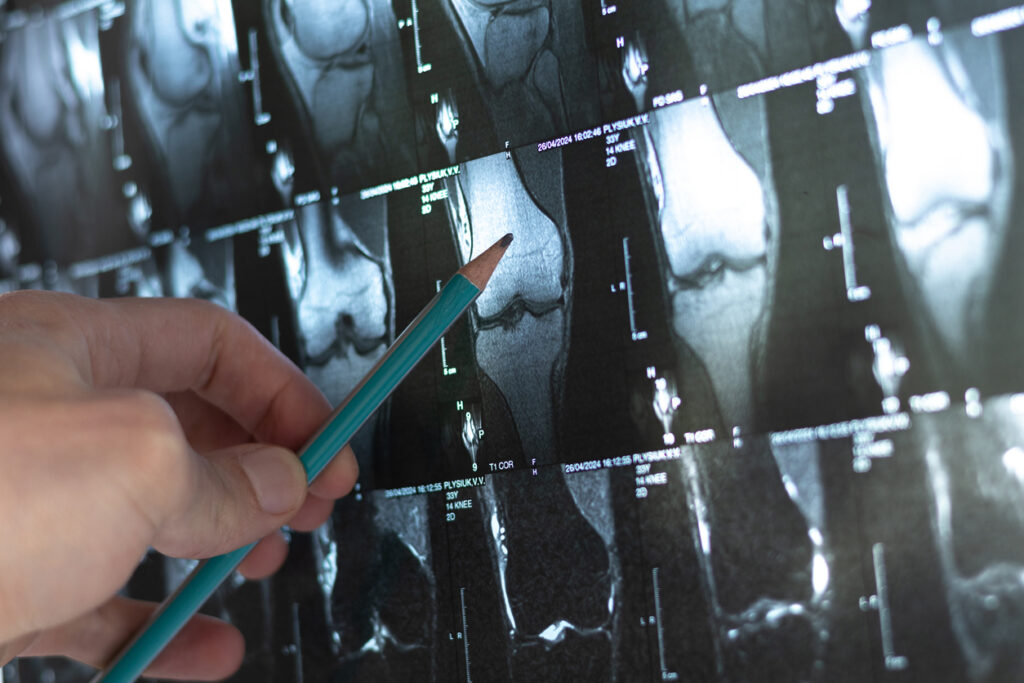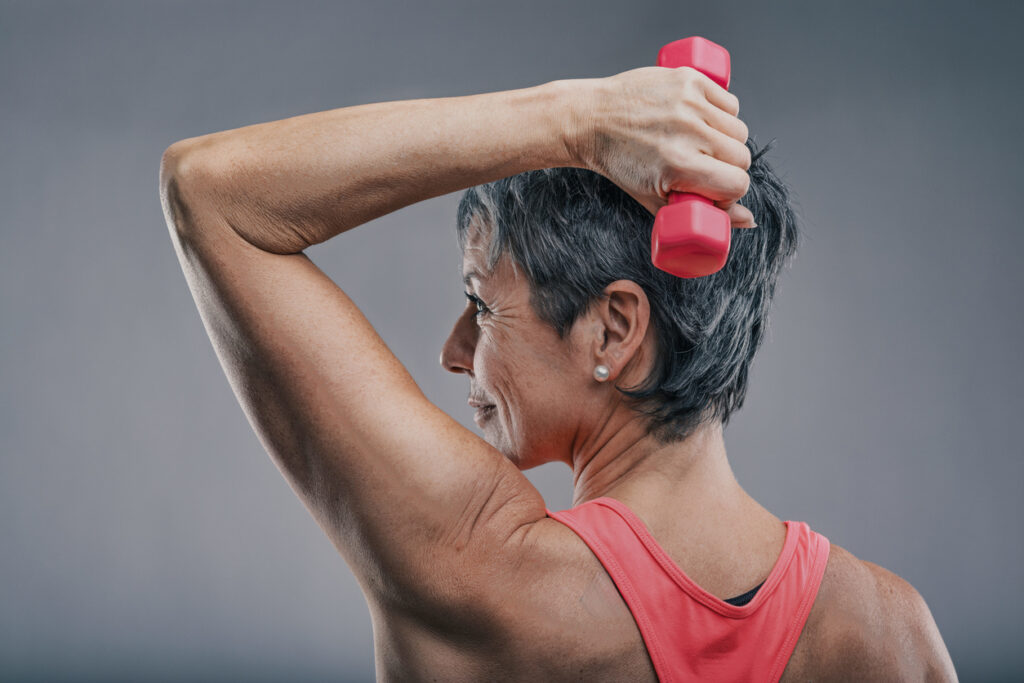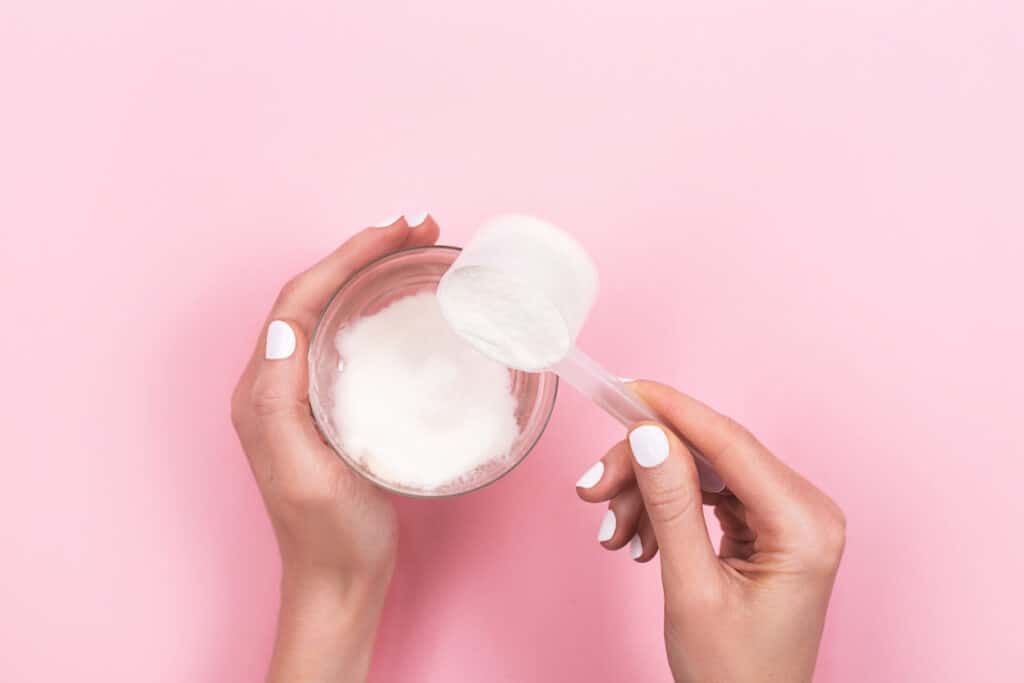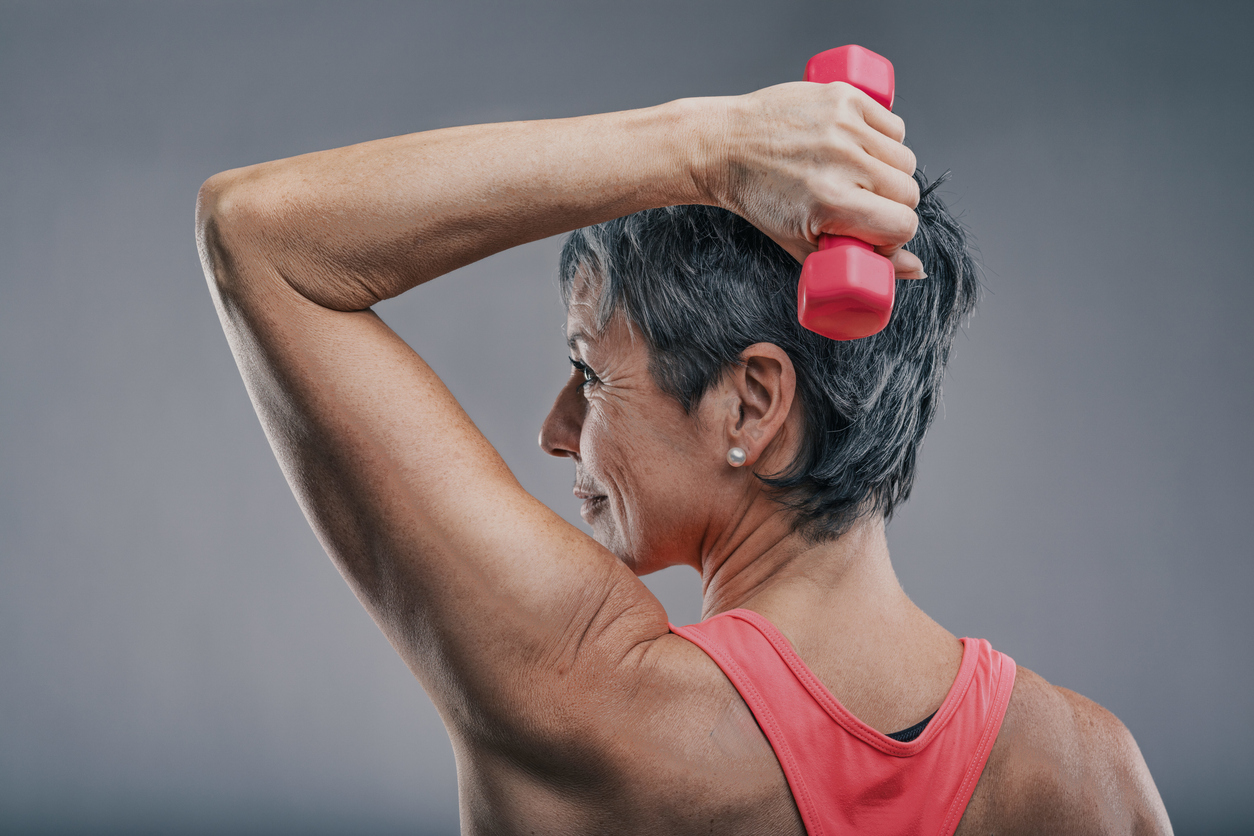Should I take creatine for menopause symptoms? Let’s talk about that.
Creatine is a new and big thing, especially for women who are in menopause. Touted as a miracle of everything from brain fog to bone health, creatine is more frequent in supplements sold to women over the age of 40. But does creatine actually work? Is creatine suitable for women in menopause?
Let’s explore how scientific research stacks up with the most common claims.
Claim #1: Creatine improves bone density
Verdict: False
Bone health is a major concern during menopause. Lower estrogen levels reduce bone mineral density (BMD) and increase the risk of osteoporosis. For this reason, many supplements claim to improve bone strength or density. Creatine is no exception.
Some people hypothesize that creatine helps bone health by improving muscle strength, thereby increasing the mechanical load on the bone. However, clinical evidence does not support this theory.
A randomized controlled trial involving postmenopausal women (PMID: 25386713) found that creatine improved muscle function but had no significant effect on BMD. Similarly, a comprehensive 2023 meta-analysis (PMID: 37144634) concluded that creatine does not prevent bone loss or osteoporosis.
Compared to nutrients with well-documented effects on bone health, such as calcium, vitamin D, and magnesium, creatine lacks strong physiological mechanisms or clinical evidence to improve BMD in women in menopause.

In summary, creatine may indirectly contribute to musculoskeletal function, but it does not increase bone density and does not replace proven osteoporosis prevention strategies.
Claim #2: Creatine is helpful for cognition
Verdict: Probably wrong
Many women who experience menopause report symptoms such as brain fog, memory revocation, and difficulty in focusing. This has led to increased interest in brain-boosting supplements like creatine.
Creatine plays a central role in the production of cellular energy, including brain cells. The theory is that lower endogenous creatine levels with age can impair brain function, and supplementation may help replenish those stores.
A 2018 review (PMID: 29704637) examined the effects of creatine on cognitive performance and found mixed results with only modest cognitive benefits in very specific circumstances. For example, some studies used very high doses (up to 20g/day) and focused on individuals who suffered from sleep deprivation or cognitive stress. These conditions are not representative of the general menopause population.
There is also limited evidence regarding the role of creatine in improving mood and depression. A 2024 pilot study (PMID: 39488067) found that creatine may increase the effectiveness of cognitive behavioral therapy (CBT) in people with depression. However, more robust testing is required to confirm this potential benefit.
Other studies have examined the effects of creatine in neurodegenerative diseases, but the findings are preliminary and cannot be applied directly to the average woman experiencing menopause.
In conclusion, creatine is not a proven solution for menopause cognitive decline or depression, and its potential benefits may be context-specific.
Claim #3: Creatine helps muscle strength
Verdict: It’s true
One of the best documented effects of creatine is its ability to increase muscle strength and power, especially when combined with resistance training.
Menopause often adds to sarcomas, age-related loss of muscle mass and function. This contributes to lower mobility, metabolic rates and overall quality of life.
Several meta-analyses support creatine as an ergogen adjuvant for older adults.
A 2021 review (PMID: 34836013) showed that creatine supplementation improves upper body strength in older adults. Another 2024 analysis (PMID: 40292479) reported that creatine combined with resistance training results in improved strength and lean body mass over exercise alone.
Creatine increases intramuscular phosphocratin storage and helps to produce more ATP during short bursts of high-intensity exercise. This will improve training performance, increase workload capacity and speed up recovery.


Creatine does not build muscle directly without training, but it helps to enhance the benefits of weightlifting and is an excellent supplement for physically active menopause women.
Is creatine safe for women in menopause?
Verdict: Yes
Creatine is one of the most extensively studied sports supplements and has a strong safety profile involving older adults.
A 2021 position paper by the International Society for Sports Nutrition (PMID: 33800439) concluded that long-term creatine supplementation (3-5g/day) is safe for healthy people. The general myths about kidney damage have been repeatedly disproved by clinical trials.
Creatine is generally well tolerated. Some users may experience mild water retention or bloating early in replenishment, but these effects are temporary. Importantly, creatine does not adversely affect hydration status, liver enzymes, or renal function in healthy adults.
Women with kidney disease or other chronic conditions should consult with their healthcare provider before starting a new supplement containing creatine.
Do I need to take creatine during menopause?
If you’re wondering if creatine is worth adding to your supplement routine during menopause, here’s a short answer:
Do not take it for bone health or cognitive performance. The evidence is not strong enough. If you are doing resistance training and need a safe and effective way to improve your strength and recovery, consider it.


In this context, creatine is not a magic pill, but a tool for improving performance. However, for active women in middle age, it can be part of a comprehensive strategy to maintain muscle, improve training ability, and maintain strong state throughout menopause and beyond.
How to Use Creatine for Best Results
If you decide to try creatine, here are some safe and effective ways to use it:
Dosage: Loading of 3-5 grams of creatine monohydrate per day (most studied format): No need. Start with daily dosages. Timing: One day is fine anytime, but some evidence after exercise suggests that it may offer slight benefits. Hydration: Creatine draws water into muscle cells, keeping you hydrated well. Consistency: Take it every day to maintain muscle saturation, even on rest days.
Final Thoughts on Creatine for Menopause
Creatine is not a miraculous treatment for menopause, but it can be a valuable tool for women with a focus on strength, mobility and overall health.
This is the bottom line:
Creatine does not improve bone density or significantly improve cognitive function. Although it may improve your mood when combined with other treatments, it requires more research. Resistance training in particular improves muscle strength and performance. It is safe and tolerated by most healthy individuals.
If you are lifting weights, recovering from workouts, or managing muscle loss associated with age, creatine may be worth adding to your routine.
References:
Candow DG, et al. (2015). Effects of creatine supplementation and resistance training on bone mineral content in postmenopausal women. PMID: 25386713 Forbes SC, et al. (2023). Creatine and bone health: a systematic review and meta-analysis. PMID: 37144634 Avgerinos Ki, et al. (2018). Effects of creatine supplementation on cognitive function. PMID: 29704637 Silva S, et al. (2024). Supplementary creatine using CBT for depression: a pilot study. PMID: 39488067 Chilibeck PD, et al. (2021). Effects of creatine supplementation during resistance training on muscle mass and strength in elderly people. PMID: 34836013 Candow DG, et al. (2024). Creatine and resistance training in aging: a critical review. PMID: 40292479 Kreider RB, et al. (2021). International Sports Nutrition Association Stand: The safety and efficacy of creatine supplementation in exercise, sports and medicine. PMID: 33800439





